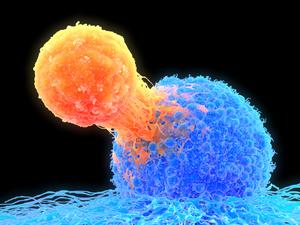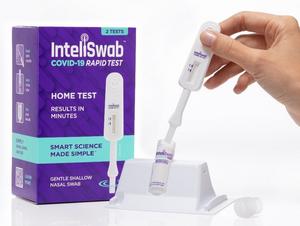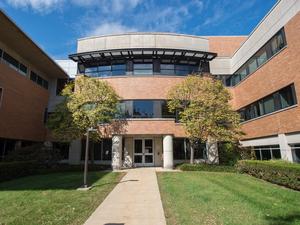This week's Philadelphia-area life sciences industry news includes details on a collaboration that could be worth up to $2 billion to a Montco biotech company, a new cell and gene therapy partnership, an expanded approval for a local company's medical device product, a Covid-related drug development setback, and more.
Here's the roundup:
Code Biotherapeutics
The Montgomery County biotechnology company has entered into a collaboration and option agreement with Takeda that has a potential value of $2 billion.
Under the terms of the deal, Takeda will leverage Code Bio’s proprietary targeted 3DNA non-viral genetic medicine delivery platform to design and develop gene therapies for liver-directed rare disease indications.
The companies also intend to conduct additional studies targeting rare central nervous system disorders.
The agreement gives Takeda, an American-Japanese multinational pharmaceutical company, the right to exercise options for an exclusive license for four programs.
While the specific financial details of the partnership are being kept confidential, Code Bio did disclose it will receive "double-digit million dollars" in upfront and near-term milestone and research funding payments. Code Bio is also eligible to receive future development and commercial milestone payments plus tiered royalties — putting the potential total deal value over the course of the partnership at up to $2 billion, provided milestones for all four programs are achieved.
Brian P. McVeigh, CEO and co-founder of Code Bio, said the collaboration will further enhance his company's capabilities by bringing together Takeda’s expertise in gene therapy and rare diseases with Code Bio's knowledge in delivering genetic medicines.
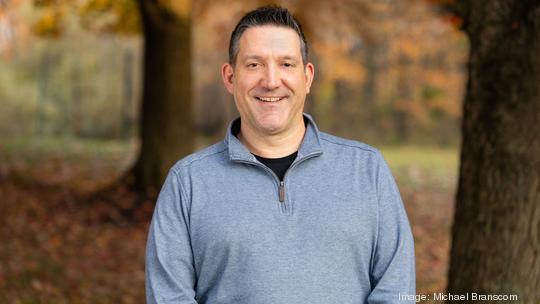
Code Bio’s targeted 3DNA non-viral genetic medicine delivery platform is designed to overcome key limitations of other genetic medicine delivery approaches, enable cell-specific targeting, deliver large genetic payloads, and potentially allow for re-dosability.
Center for Breakthrough Medicines
The King of Prussia-based cell and gene therapy contract development and manufacturing organization has entered into an agreement with BioAnalysis, a contract research organization based in the University City section of Philadelphia.
The deal provides the center's clients with direct access to BioAnalysis' advanced testing capabilities, which include the characterization of viral vectors using proprietary methods developed by BioAnalysis.
The alliance provides the Center for Breakthrough Medicines with access to the gene therapy product and process skill set developed by Dr. Lake Paul, the founder and principal scientist at BioAnalysis, and his team.
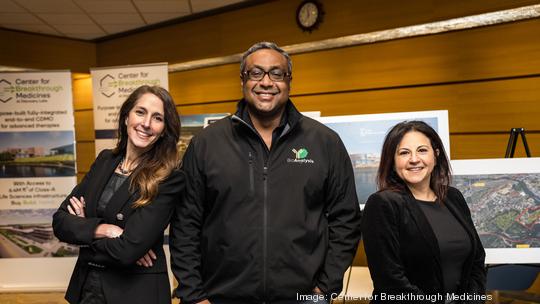
"The next generation testing capabilities they bring to the table for [the center's clients] will be a game-changer,” said Dana Cipriano, senior vice president of testing and analytical services at the Center for Breakthrough Medicines.
InfraScan
The Philadelphia medical device developer, which specializes in traumatic brain injury diagnostic products, has received an expanded indication for its Infrascanner from the Food and Drug Administration.
The expanded indication covers the use of Infrascanner to detect traumatic supratentorial hematomas in pediatric patients 2 years old and older. The device was already approved for use in adults.
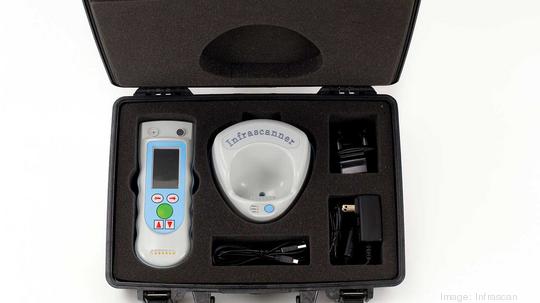
Baruch Ben Dor, CEO of InfraScan, said the FDA action makes the Infrascanner the only hand-held device in the U.S. health care market cleared for use in the pediatric population to aid in the diagnosis of patients with a potential traumatic brain hemorrhage.
InfraScan has more than 1,000 of the devices deployed in the United States and internationally.
Marinus Pharmaceuticals
The Radnor biopharmaceutical company said due to the impact of the Covid-19 omicron variant on hospital resources, and the interruption of clinical supply material associated with IV ganaxolone, the company does not expect to complete late-stage testing of the new drug candidate until the second half of 2023.
Marinus (NASDAQ: MRNS) is developing IV ganaxolone as a treatment for seizures disorders in epilepsy patients.
According to the company, Covid has put a significant strain on hospital intensive care units, where its clinical trial is being conducted, which has led to a slower than anticipated study enrollment.
In addition, Marinus said it has temporarily paused the trial after routine monitoring of stability batches of clinical supply material indicated that it became necessary to reduce the shelf life to less than the anticipated 24 months to meet product stability testing specifications. Marinus is targeting the resupply of clinical trial material by the end of the second quarter of this year.
In a separate action, the company said it is making improvements in the manufacturing process in order to achieve a 24-month or greater product shelf life for IV ganaxolone.
The clinical supply interruption, Marinus noted, affects the IV formulation of ganaxolone and the IV clinical programs. This supply issue does not affect ganaxolone’s oral suspension formulation or the company’s new drug application submitted in July to the FDA. A decision on the application is expected next month.
Quick Hits
The first clinical trial of a gene-editing therapy for HIV infection is now underway in Philadelphia through a collaborative effort between scientists at the Lewis Katz School of Medicine at Temple University and investigators at Excision BioTherapeutics Inc. The trial is designed to evaluate the safety, tolerability, and efficacy of EBT-101, a unique gene-editing treatment. … Wilmington-based Ayala Pharmaceuticals (NASDAQ: AYLA) completed patient enrollment in part A of its Phase 2/3 clinical trial testing its new drug candidate AL102 as a potential treatment for desmoid tumors. The study involving 36 patients will be used to determine optimal dosing levels for the randomized portion of the study in up to 156 patients. Desmoid tumors, which afflict about 1,700 patients annually in the United States, are rare connective tissue tumors that typically arise in the upper and lower extremities, abdominal wall, chest wall, and the head and neck area.
